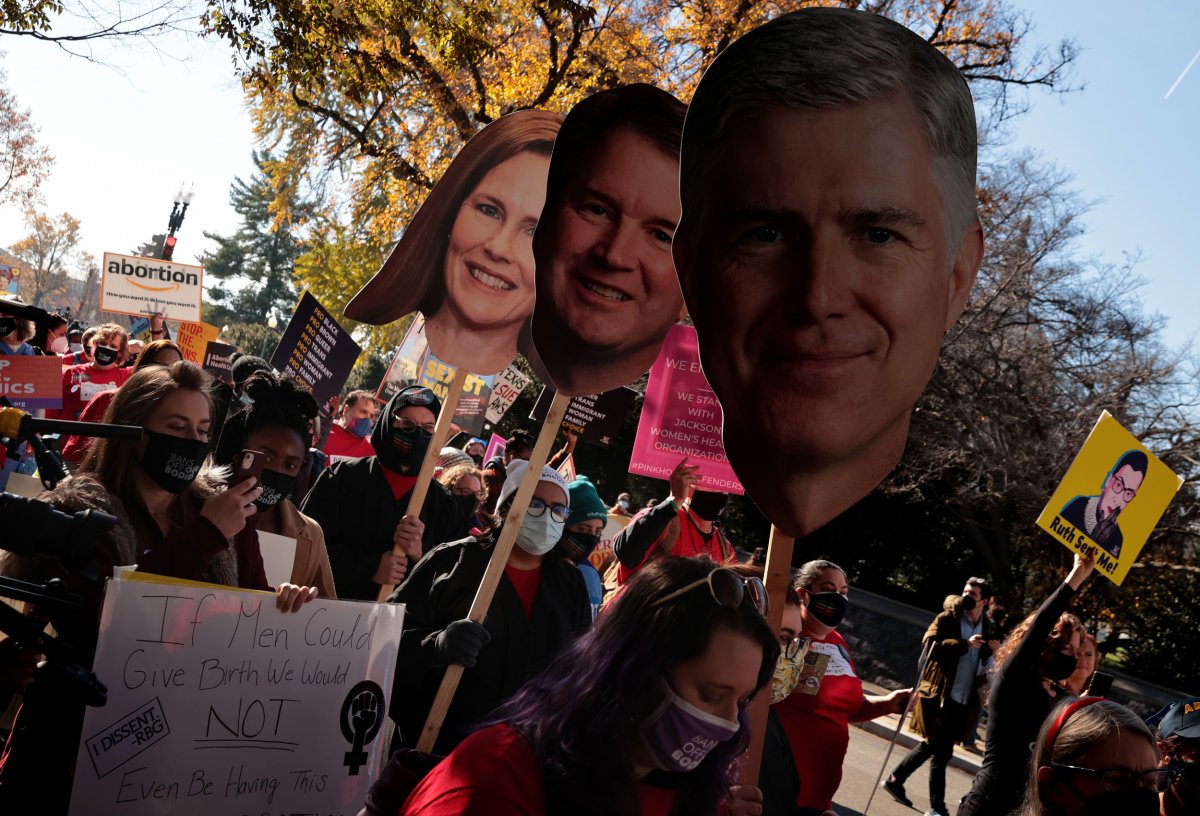The U.S. Supreme Court will hear oral arguments on Wednesday in a case that could see a major change in the nature of funding for schools that provide religious education across the country.
In Carson v. Makin, the nine justices are being asked to decide whether the state of Maine's tuition assistance program violates the Constitution by excluding so-called "sectarian" schools from receiving funds.
The Court has previously indicated a willingness to come down on the side of religious freedom, particularly in the case of schools, but a ruling against Maine would be seen by critics as a blow to the separation of church and state as it could open the door to public funding for religious instruction.
The case centers on the fact that Maine has an almost unique system of providing state funds so that students can obtain a public education in private schools.
This is due to the fact that more than half of school districts in the state do not have a public high school.
About 175,000 students either attend their local public school or another public school in a different district. Some districts allow students to choose a public or private school and then the school district pays the tuition.
Sectarian Schools
Maine pays for around 4,800 students to attend the state's 11 private, non-sectarian schools but the tuition program excludes schools that are "sectarian"—meaning they provide religious instruction that the state contends is not consistent with a public education. Advocates for the separation of church and state would also argue that state funding for religious instruction in schools violates the principle of separation.
Two sets of parents—David and Amy Carson and Troy and Angela Nelson—are suing the state because of the exclusion of religious schools. The Carsons sent their daughter to Bangor Christian School from kindergarten to high school and say that since their town does not have a high school, the state should pay the tuition.
The Nelsons want to send their son to Temple Academy but won't be able to afford the tuition without state assistance. Both schools are Christian, only hire born-again Christians, and will not admit LGBTQ students or hire LGBTQ staff.
The parents have sued, claiming the exclusion of sectarian schools violates the free exercise clause of the U.S. Constitution and arguing that the state should be neutral as to whether the schools receiving funding are religious or not.
The U.S. Court of Appeals for the First Circuit ruled against the parents and found that Maine's program "does not bar schools from receiving funding simply based on their religious identity."
That court drew a distinction between a school's religious identity and public funding going toward "religious use," concluding that Maine's law "merely reflects Maine's refusal to subsidize religious exercise."
The parents appealed to the Supreme Court, which will now have to decide whether Maine can exclude sectarian schools or whether its program should fund schools with religious instruction.
The Court's View
The Court has long erred on the side of religious practice, ruling in 2017's Trinity Lutheran Church of Columbia v. Comer that a church could not be denied a publicly available benefit because of its religious status. The benefit in question was funding for a playground.
In 2020's Espinoza v. Montana Department of Revenue, the Court ruled 5-4 that states cannot exclude families or schools from assistance programs to fund private education based on religious status. However, the Court also found that states are not required to subsidize private education.
That ruling did not address whether exclusions were permissible because funding would be used for religious purposes.
The Court now has a 6-3 conservative majority and may be amenable to the parents' arguments. They are asking the Court to find that there was no basis for the First Circuit to make a distinction between religious identity and "religious use."
Maine argues that the program is designed to provide a public education that should be nonsectarian and the Nelsons and Carsons are not being denied a "generally available public benefit" since the program is provided only to a limited number of families.
"Instruction that inculcates, instills, imbues a particularly religious view through its materials, through its teachings, prescribing that there's one religion above others and that there are certain ways of the world that are consistent with that religion...is not consistent with a public education," said Maine Attorney General Aaron Frey.
The views of the six conservative justices will be key to the outcome of the case. Associate Justice Samuel Alito has been particularly vocal about the need for the Court to do more for religious liberty, while Justices Clarence Thomas and Neil Gorsuch joined an opinion he wrote on the matter in June.
Church and State
If a majority of the justices side with the parents, the ruling could have widespread effects on public funding for religious education and create new ways for parents to win funding for religious schools.
Writing in The Washington Post, Rachel Laser of Americans United for Separation of Church and State argued on Sunday that a ruling against Maine could create a requirement for states to fund religious instruction, going beyond the ruling in Espinoza—an interpretation that "threatens both true religious freedom and public education."
Laser argued that state funding for religion could go beyond schools, potentially affecting other services where states enter into contracts with private organizations.
It remains to be seen if the Court will uphold the status quo or allow a substantial change in the relationship between states and religion.

Uncommon Knowledge
Newsweek is committed to challenging conventional wisdom and finding connections in the search for common ground.
Newsweek is committed to challenging conventional wisdom and finding connections in the search for common ground.
About the writer
Darragh Roche is a U.S. News Reporter based in Limerick, Ireland. His focus is reporting on U.S. politics. He has ... Read more
To read how Newsweek uses AI as a newsroom tool, Click here.








